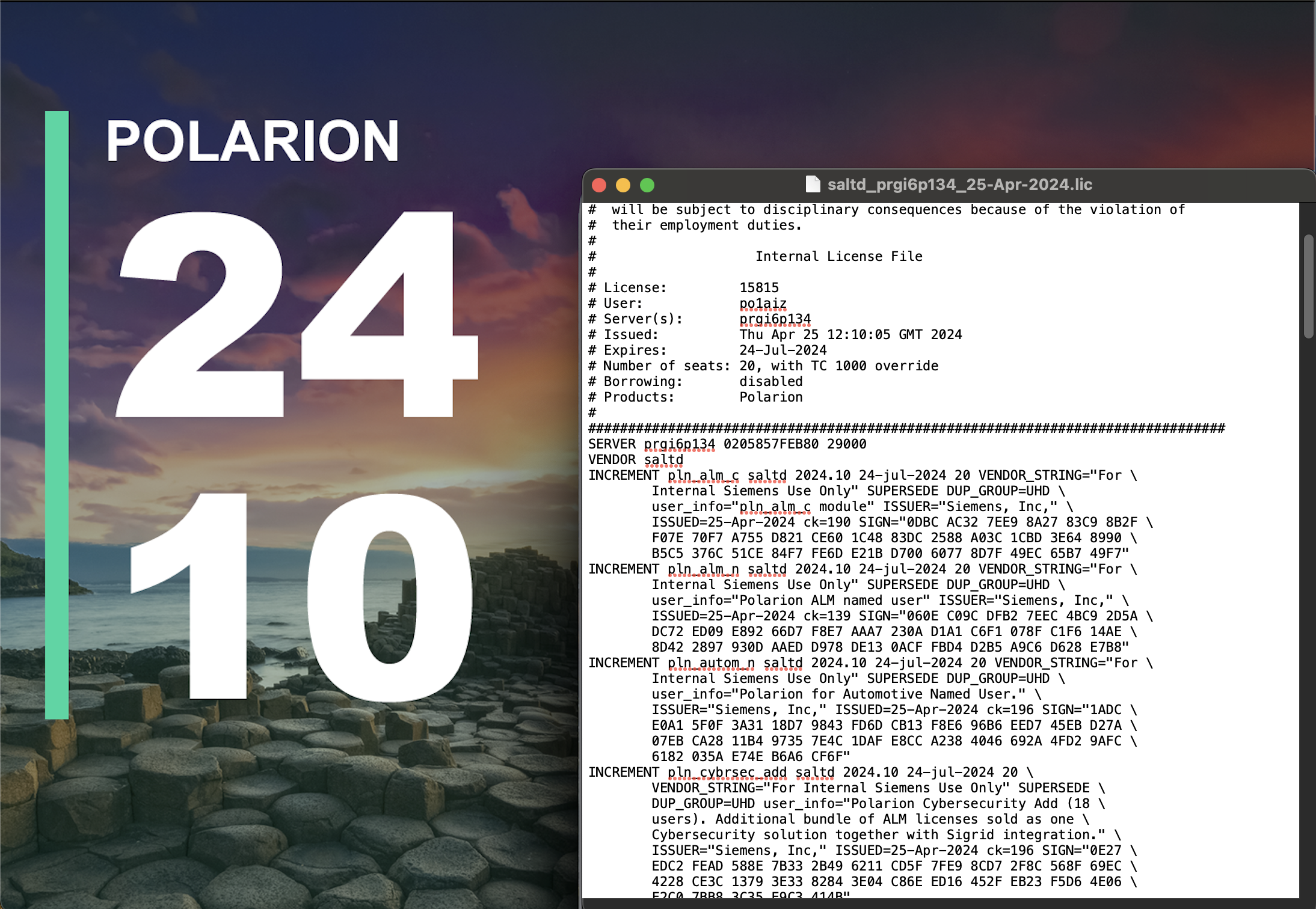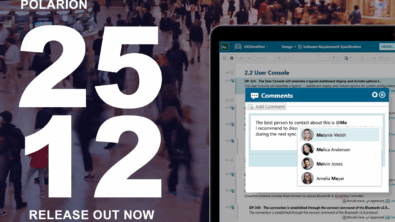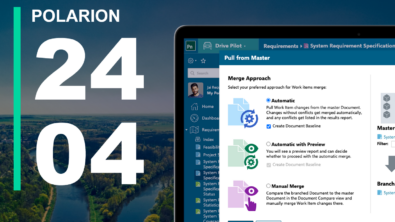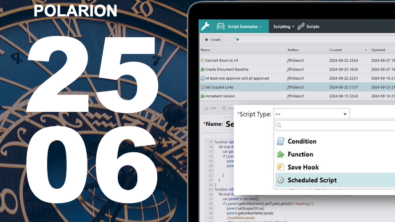Polarion Introduces SALT Licensing Support: What’s New in Releases 2404 and 2410

What is SALT?
SALT (Siemens Advanced Licensing Technology) is Siemens’ unified licensing platform aimed at simplifying the licensing process across its product suite. It merges legacy systems, like Mentor Graphics and Siemens PLM licensing, into one streamlined model. SALT leverages the Siemens License Server (SLS) to manage license files, making license administration easier and ensuring seamless compatibility with Siemens software. It is based on FlexNet technology and supports both new and legacy Siemens applications.
For more details, including documentation and downloads, visit the SALT product page.
What has Changed for Polarion?
With the release of versions 2404 and 2410, Polarion aligns with Siemens’ licensing tools and processes, integrating SALT as the new licensing provider. This shift impacts how licenses are delivered and configured. However, there are no changes to how user licenses are assigned, consumed, or managed in Polarion. The primary update is Polarion’s ability to consume licenses from SALT, moving away from the proprietary licensing method.
Polarion now communicates with the SALT license server during startup and user login/logout, ensuring licenses are efficiently checked out and returned to the pool.
Polarion 2404: Introduction of SALT Licensing
Polarion 2404 introduced a dual licensing model, allowing Polarion to support both its proprietary licensing system and SALT. During this release, proprietary licensing remained the default option.
Polarion 2410: SALT Becomes the Default
In Polarion 2410, SALT became the default licensing provider for all new and updated Polarion installations. However, customers can still revert to the proprietary licensing model through configuration changes in the polarion.properties file.
Installation and Update Process
For customers updating to version 2410, follow these key steps:
- Install the SALT service in advance.
- Obtain your SALT license file from Siemens.
- Configure the environment variable so Polarion can read the license.
- Update Polarion to the latest version.
More detailed instructions can be found in the Polarion Help.
Cluster Update Considerations
For customers using cluster installations, it is essential to ensure all nodes, and the coordinator are using the same licensing mode. This impacts the cluster incremental update procedure where an updated node is reindexing the data before the rest of the cluster is updated. If you follow such update procedure, then before updating:
- If your coordinator is on an older version using the classic licensing model, set the following property to false in the polarion.properties file on the Polarion servers you are updating:
com.siemens.polarion.license.salt.enabled=false - After updating, switch to SALT licensing. Remove this property from all nodes and the coordinator, as the default is true. Restart both the coordinator and all nodes to ensure a consistent configuration across the cluster.
How to Get a SALTD License File
To obtain a SALTD license, you must provide the Composite ID (CID), a unique machine identifier used on the SERVER line of the license file. Once Siemens has the CID on the file, licenses will be automatically delivered for new orders or updates. The CID only needs updating if there are changes on the customer’s end.
The getCID utility is available in the slsi_hostid_utils-<version>.zip package under the Siemens License Server Downloads section in the Support Center.
After providing the CID to Siemens Global Order Management (GOM), the CID will be stored in the Business System and a SALTD license key will be archived and provided. The archived SALTD license key will be available for Download through Support Center on the following day as well.
When will proprietary licensing be deprecated
SALT will be the default licensing option going forward, but in both the 2506 and 2512 Polarion releases, it will still be possible to switch back to proprietary licensing. Proprietary licensing will be removed in the future; however, the release in which this will happen will be communicated well in advance to ensure a smooth transition to SALT for all customers.


